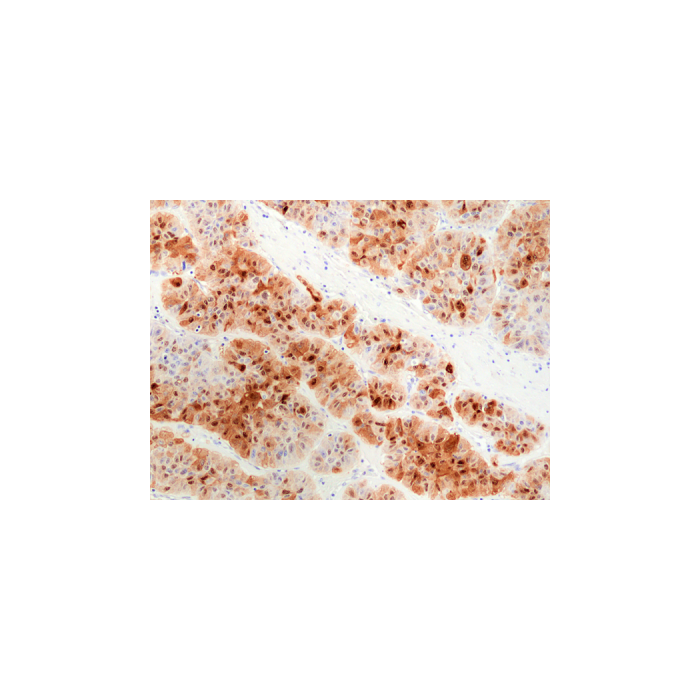Cookie Policy: This site uses cookies to improve your experience. You can find out more about our use of cookies in our Privacy Policy. By continuing to browse this site you agree to our use of cookies.
RevMab
anti-HSP70 (human), Rabbit Monoclonal (RM432)

| Product Details | |
|---|---|
| Product Type | Recombinant Antibody |
| Properties | |
| Clone | RM432 |
| Isotype | Rabbit IgG |
| Source/Host | Rabbit |
| Immunogen/Antigen | A recombinant human HSP70 protein. |
| Application |
Immunohistochemistry (IHC): 1:100-1:500 dilution Western Blot (WB): 1:2000-1:5000 dilution |
| Crossreactivity | Human |
| Specificity |
RM431 reacts to human HSP70. |
| Purity | Protein A purified. |
| Purity Detail | Protein A affinity purified from an animal origin-free culture supernatant. |
| Concentration | N/A |
| Formulation | Liquid. 50% Glycerol/PBS with 1% BSA and 0.09% sodium azide. |
| Isotype Negative Control | |
| Other Product Data |
Click here for Original Manufacturer Product Datasheet |
| Declaration | Manufactured by RevMab Biosciences. |
| Shipping and Handling | |
| Shipping | BLUE ICE |
| Long Term Storage | -20°C |
| Handling Advice | Avoid freeze/thaw cycles. |
| Use/Stability | Stable for at least 1 year after receipt when stored at -20°C. |
| Documents | |
| Product Specification Sheet | |
| Datasheet |
 Download PDF Download PDF |
HSP70 is a molecular chaperone expressed constitutively under normal conditions to maintain protein homeostasis and is induced upon environmental stress. It functions by acting as molecular chaperones, facilitating protein refolding and preventing protein aggregation. It has been reported that extracellular HSP70 also exhibits immunomodulatory effects on innate and acquired immunity. HSP70 is membrane associated in lysosomes, mitochondria,and the outer surface of cancer cells. It plays a role in vesicle formation and protein trafficking. HSP70 expression in colorectal carcinoma and breast carcinoma has been significantly correlated with low differentiation and poor prognosis, whereas in renal cell carcinoma it has been reported to be associated with good prognosis. Expression of HSPs on the surface of tumor cells, instead of their normal intracellular location, suggests they play a role in inducing an immune response against cancer.





